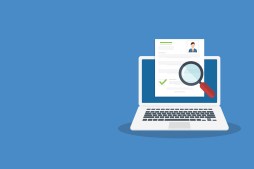Mastering the RBT Exam: Expert Tips and Practice Test Strategies
Preparing for the Registered Behavior Technician (RBT) exam can be a daunting task. Aspiring RBTs need to demonstrate their knowledge and understanding of behavior analysis principles, ethical considerations, and intervention strategies. To help you succeed in this important milestone, we have compiled expert tips and practice test strategies to guide your preparation process.
I. Understanding the RBT Exam
Before diving into preparation strategies, it’s crucial to have a comprehensive understanding of what the RBT exam entails. The exam consists of 85 multiple-choice questions that cover various topics related to behavior analysis. These questions are designed to assess your knowledge and application skills in real-life scenarios that an RBT may encounter.

The categories covered in the exam include Measurement, Assessment, Skill Acquisition, Behavior Reduction, Documentation and Reporting, Professional Conduct and Scope of Practice, as well as Ethics.
II. Expert Tips for Effective Preparation
Familiarize Yourself with the Task List: The Behavior Analyst Certification Board (BACB) provides a task list that outlines the skills and knowledge required for an RBT. Review this list thoroughly to understand what you need to focus on during your studies.
Create a Study Schedule: Developing a study schedule is essential for effective preparation. Allocate specific time slots for each topic or category covered in the task list. This will ensure you cover all areas adequately without feeling overwhelmed.
Utilize Reliable Study Materials: Invest in high-quality study materials such as textbooks or online courses specifically designed for RBT exam preparation. These resources will provide you with comprehensive content coverage and practice questions that closely resemble those on the actual exam.
Join Study Groups or Forums: Collaborating with others who are also preparing for the RBT exam can be beneficial. Join online study groups or forums where you can discuss challenging topics, ask questions, share resources, and gain insights from others’ experiences.
III. Practice Test Strategies
Take Practice Tests Regularly: Incorporate practice tests into your study routine. These tests will help you familiarize yourself with the format and structure of the exam questions. Additionally, they will identify areas where you need to focus more attention.
Analyze Your Performance: After completing each practice test, thoroughly review your answers, paying close attention to the ones you got wrong or found challenging. Analyzing your performance will help you identify weak areas that require further study and revision.
Time Yourself: Mimic the actual exam conditions by setting a time limit for each practice test session. This will train you to manage your time effectively during the real exam and improve your speed in answering questions.
Focus on Areas of Weakness: As you review your practice tests, identify specific topics or categories where you struggled the most. Dedicate extra study time to these areas to strengthen your knowledge and understanding.
IV. Final Thoughts
Preparing for the RBT exam requires dedication, consistency, and a structured approach to studying. By understanding the content covered in the exam, utilizing expert tips for effective preparation, and implementing practice test strategies, you can increase your chances of success.
Remember to stay focused, manage your time wisely during both studying and taking practice tests, and seek support from online communities or study groups when needed. With persistence and a well-rounded preparation strategy, you’ll be well on your way to mastering the RBT exam.
This text was generated using a large language model, and select text has been reviewed and moderated for purposes such as readability.


